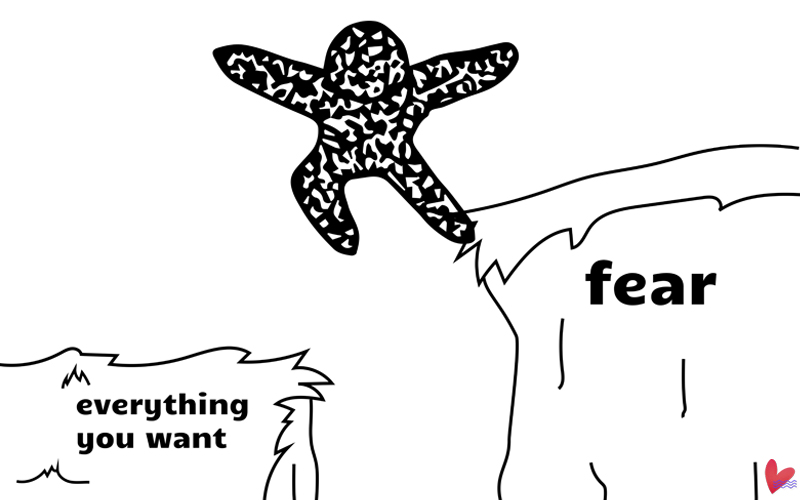Turning fear into action
Up until recently, I’ve been holding off on doing a lot of things due to fear. Writing an article like this, putting it into a newsletter, and sending that newsletter every week is one of those things.
You know the irrational voice in your head that convinces you not do the thing you really want to do? It’s not like we’re incapable of doing what we want. It’s the fear of what happens once it’s out in the world that often stops us.
When it comes to overcoming that fear, I’ve found one key method to help: changing my perspective. Every experience in life, both good and bad, presents an opportunity to grow. If you shift your fear into an excitement to grow, it can drastically help with taking action.
The opportunity to learn and to grow is exciting, because your experiences will get you closer to where you intend to be. Below are some ways I’ve changed my perspective around common fears.
Fear of failure > Excitement to learn new skills
I’m not a professional blogger, writer, or website builder. But I’ve been doing all of these things with an excitement to learn new skills. That excitement allows me to look at these tasks as an adventure.
This frame of mind has kept me open and flexible. I know that this blog doesn’t need to be perfect to start. As long as it helps someone, then I’ve done a good job at this stage.
There’s a term called the Minimum Viable Product (MVP). This is a version of a product with just enough features to satisfy early customers and provide feedback for future product development. This can be applied to any ambitious project, because you always have to start somewhere. Instead of trying to make something perfect, it is often more valuable to start with “good enough” and build over time.
As you continue to grow, you can collaborate with people who are more skilled in some of the things you struggle with, and use automation tools that will make the process easier.
Fear of judgement > Excitement to improve
One of the biggest things that holds many of us back is fear of being judged by others. Even if it’s not a big fear of yours, being criticized never feels good. Instead of putting something out there and hoping no one will hate it, do your best to embrace constructive feedback.
There will always be blind spots in anything you do, and it’s helpful to see it from another person’s perspective. That way, when you do get criticism or judgement, you know that you did your best and where you can improve.
Taking it a step further, you can document your progress and create milestones. If you develop a way to quantify improvement, then you can track your growth over time. Being judged is an inevitable part of life. We can use it to our advantage to find our areas of improvement, and then work on them.
Fear of making mistakes > Excitement to make mistakes
Making mistakes is one of the only ways we grow. Unfortunately not all of us have the luxury to learn from mentors, parents, or siblings. Even if you do have people you can learn from, there are always going to be mistakes you have to experience on your own.
That uncomfortable feeling of making a mistake is there for a reason. It gives you clues for what can be adjusted in the future. Instead of avoiding that discomfort, do your best to learn everything you can from it. The lessons you learn can applied to future scenarios.
I made a lot of mistakes early in my career, like everyone. Some of them were so small that I didn’t notice it at the time. It took paying attention to those uncomfortable feelings to discover changes in my behavior that would yield better results. I didn’t have anyone to honestly point those things out to me, so it took a lot longer. Reading books to help develop self-awareness and going to therapy has been critical in the process.
These are three fears that I believe every single person experiences. The next time you feel yourself experiencing these fears, try to flip them on their head. Approach them with a sense of adventure and excitement. See all what you can learn from your fears, and eventually you will master turning them into effective action.



